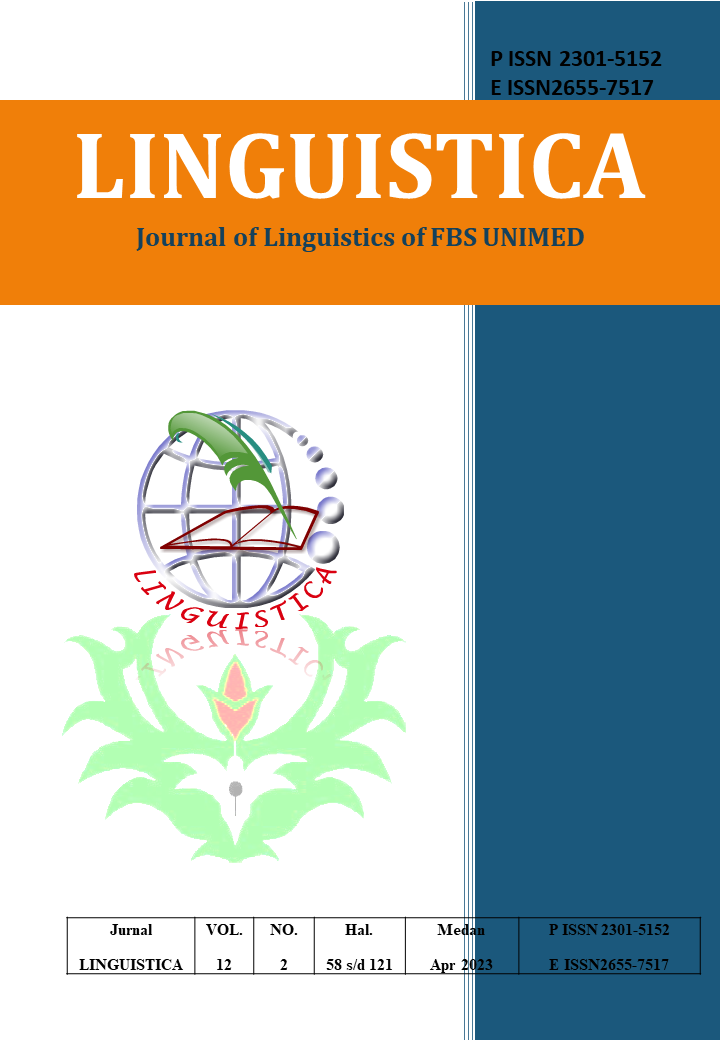A PRAGMATIC ANALYSIS OF HUMOR USED IN ENGLISH MEETING CLUB
DOI:
https://doi.org/10.24114/jalu.v12i2.45199Abstract
Humor is kind of learning tactics which become someone™s style in doing certain methods or learning technique individually. The aim of this research is to found the types and the effects of humor in meeting club. The samples were the learners of Meeting club. The instrument of this research is Audio recording. Based on the result of this research, there are three types of humor appear in meeting club, likes Teasing, Banter and Joking and they are to create communicative teaching and learning, to activate learner in teaching and learning, to increase of the student's English ability especially speaking skill. Finally, it was strongly recommended and effectiveness for humor as an aid to learning and instruction, and trying to eliminate problem in learning English by considering the effects of using humor in Meeting club.Downloads
Published
2023-05-01
Issue
Section
Articles
License
Copyright (c) 2023 JUVRIANTO CHRISSUNDAY JAKOB

This work is licensed under a Creative Commons Attribution-ShareAlike 4.0 International License.
Authors who publish with this journal agree to the following terms:
- Authors retain copyright and grant the journal the right of first publication with the work simultaneously licensed under a Creative Commons Attribution License that allows others to share the work with an acknowledgment of the work's authorship and initial publication in this journal.
- Authors are able to enter into separate, additional contractual arrangements for the non-exclusive distribution of the journal's published version of the work (e.g., post it to an institutional repository or publish it in a book), with an acknowledgment of its initial publication in this journal.
- Authors are permitted and encouraged to post their work online (e.g., in institutional repositories or on their website) prior to and during the submission process, as it can lead to productive exchanges, as well as earlier and greater citation of published work (See The Effect of Open Access).
- This work is licensed under a Creative Commons Attribution-ShareAlike 4.0 International License.

